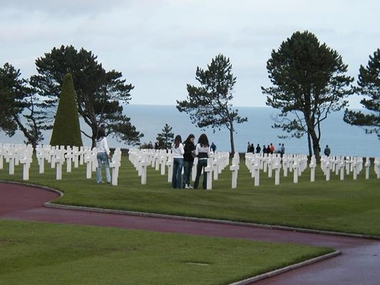Gay history: Cleaning up the debris

by Rob Howard
Political Columnist
Sometimes it’s hard to remember just how rocky the early Twenty-First Century was for LGBT rights. We could not marry in any state. And even though we couldn’t get married, the federal (so-called) Defense of Marriage Act, or DOMA, said that, if by some twist of fate we could get married, the federal government, which has more than 1100 rights and benefits for married people, would not recognize our union.
DOMA passed Congress, overwhelmingly, in a bi-partisan vote in 1996. Sen. Ted Kennedy (D-MA) called it what it was: “a mean-spirited form of legislative gay-bashing designed to inflame the public four months before the November election."
We could not serve in the Armed Forces if we were openly gay or lesbian. The “Don’t Ask, Don’t Tell” (DADT) law, passed in 1994, made sure of that. Being gay in the military was risky business; from World War II to the repeal of DADT, roughly 114,000 servicemembers were discharged because of sexual orientation. Stars and Stripes said, in a 2013 article, that “depending on the discharge classification and the state in which they lived, they could be treated as felons and precluded from voting and collecting unemployment and veterans’ benefits, such as health care and disability.”
In 2003, there was a ray of light. The Supreme Court in Lawrence v. Texas overturned every state sodomy law that was then in force. In effect, Lawrence decriminalized homosexuality. Justice Antonin Scalia, predictably, dissented, saying, “If moral disapprobation of homosexual conduct is 'no legitimate state interest' for purposes of proscribing that conduct [i.e. sodomy] ... what justification could there possibly be for denying the benefits of marriage to homosexual couples exercising '[t]he liberty protected by the Constitution?'”
Taking that thought to heart, Karl Rove, political advisor to President George W. Bush, effectively turned the 2004 presidential election into a referendum on gay marriage by making it a major part of Bush’s campaign, and encouraging states to pass laws, or better, constitutional amendments, to ban same-sex marriage. Every state in The Gayly’s distribution area did just that. To prod the campaign along, Rove pointed to Massachusetts’ approval of gay marriage on May 17, 2004.
Things did get a lot better. DADT was repealed by Congress in 2010. DOMA was partially overturned by the Supreme Court in its 2013 Windsor decision. Two years ago, when Windsor was decided, only eight states and the District of Columbia had same-sex marriage.
And then – victory! Two years after Windsor same-sex marriage is the law of the land.
But wait. We have a little debris to clean up. 114,000 service members were discharged since World War II for being gay. Many have less than honorable discharges, which precludes them from any Veterans benefits. Probably tens of thousands more decided to get out of the military because it wasn’t worth the risk. Thousands, maybe millions, of LGBT people had no access to federal or state benefits accorded to married couples. Some of those, like Social Security, Veterans’ benefits, and both public and private retirement plans, have lost billions of dollars because of homophobic laws.
Those soldiers need their discharges upgraded. And those prevented from marrying need some settlement for what they have lost out on. It’s only fair!
The Gayly – October 16, 2015 @ 4:05pm





